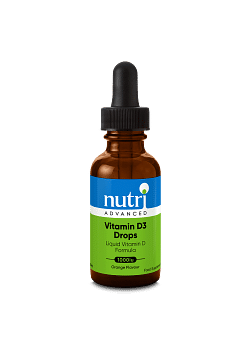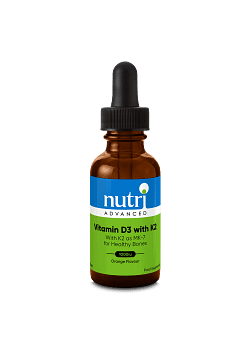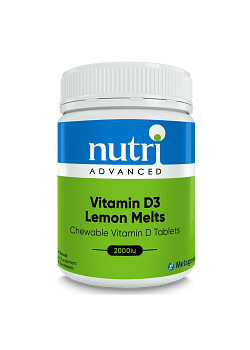Vitamin D Supplements May Prevent Colds and Flu
Why you can trust Nutri Advanced Every article on our site is researched thoroughly by our team of highly qualified nutritionists. Find out more about our editorial process.
A 2017 systematic review and meta-analysis found that vitamin D supplements may help to prevent colds and flu in as many as 3 million people every year.
This large-scale research, published in the British Medical Journal, reviewed 25 randomised controlled trials, and analysed data from a total of 11,213 participants. Results showed that daily or weekly vitamin D supplements could mean 3 million fewer people experiencing at least one acute respiratory tract infection each year.
Vitamin D plays a role in the immune system, by helping to induce antimicrobial peptides, which help to fight bacteria and viruses. However, because vitamin D is made in the skin in response to sunlight, many people have low levels in the winter.
Whilst Public Health England recommends that everyone in the UK take a daily supplement of vitamin D between October and March, and that higher risk groups such as babies and young children up to the age of 4, should supplement all year round, these recommendations are based on muscle and bone health primarily.
This new analysis shows that vitamin D is not only vital for healthy bones, but your immune system too.
The analysis showed that those with a vitamin D deficiency experienced the greatest clinical benefits, and that daily or weekly doses had a protective effect against acute respiratory tract infections, whereas large super-doses did not.
Respiratory tract infections (which range from the common cold to pneumonia) are responsible for hundreds of thousands of hospital admissions every year, and thousands of deaths, so the results of this study, showing that vitamin D supplements could help to prevent such infections, especially in those who are vitamin D deficient are incredibly significant.
References:
Martineau A et al. Vitamin D supplementation to prevent acute respiratory tract infections: systematic review and meta-analysis of individual participant data. British Medical Journal 2017; 356:i6583
This website and its content is copyright of Nutri Advanced ©. All rights reserved. See our terms & conditions for more detail.
Nutri Advanced has a thorough research process and for any references included, each source is scrutinised beforehand. We aim to use the highest value source where possible, referencing peer-reviewed journals and official guidelines in the first instance before alternatives. You can learn more about how we ensure our content is accurate at time of publication on our editorial policy.
Most Popular Articles
-
7 Surprising Ways To Support Your Magnesium
If you are displaying signs of a magnesium deficiency, here are 7 ways to boost your magnesium levels that are easy to incorporate into your daily life. -
5 Best Vitamin C Supplements Picked By Our Experts
Learn more about the different types of vitamin C, the different benefits you get from different types, and what you get for spending more on a good supplement. -
Top 5 Vitamins For Energy And Tiredness Picked By Our Experts
The 5 best and most important vitamins for energy & tiredness including B vitamin food sources & best supplement forms for energy. -
Benefits of Myo-Inositol for Polycystic Ovary Syndrome (PCOS)
In this research review article, we take a closer look at a lesser-known natural compound called myo-inositol that has been found to have significant potential to improve many of the prevalent features of PCOS. -
Top 10 Reasons to Give Your Kids Omega-3
Read the top 10 reasons that kids should have plenty of Omega-3- an essential fatty acid- including for depression, brain function, sleep & reading/maths skills.

















